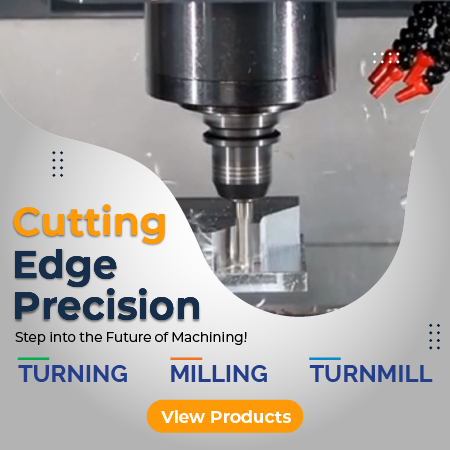4 Ways CNC Machining is Shaping the Future of Medical Devices
Imagine a world where surgeons have access to highly customized tools precisely designed for minimally invasive procedures. Or a future where patients receive perfectly fitting implants tailored to their unique anatomy. This is the reality that CNC machining is helping to create in the medical industry.
CNC, or Computer Numerical Control, machining utilizes computer-controlled machines to create intricate parts from a variety of materials. This technology has become a game-changer in medical device manufacturing, offering unmatched precision, consistency, and versatility. In this blog post, we'll explore how CNC machining is revolutionizing the production of medical components, making healthcare safer and more effective.
Why is CNC Machining Important in Medicine?
CNC machining plays a vital role in ensuring the quality and functionality of medical devices. Traditional manufacturing methods often struggle to achieve the level of precision and consistency required for these delicate components. Here's how LMW CNC machining benefits the medical field:
Improved Patient Outcomes: Precisely manufactured implants and surgical tools minimize complications and ensure better fit and performance, leading to faster patient recovery times and improved overall outcomes.
Enhanced Safety: LMW CNC machining allows for the creation of complex medical devices with intricate features, promoting minimally invasive procedures that reduce risks associated with traditional surgery.
Material Versatility: LMW CNC machines can work with a wide range of biocompatible materials, including titanium, stainless steel, and various medical-grade plastics. This allows for the creation of implants and devices that are safe and well-tolerated by the human body.
4 Ways LMW CNC Machining is Shaping the Future of Medical Devices
LMW CNC machining has a wide range of applications in the medical field. Here are some key examples:
Orthopedic Implants: LMW CNC machines are used to manufacture joint replacements, bone plates, screws, and other orthopedic implants. These components require exact dimensions and smooth finishes to ensure proper functionality and patient comfort.
Surgical Instruments: From scalpels and forceps to delicate laparoscopic tools, LMW CNC machining enables the creation of intricate surgical instruments with high precision and repeatability. This ensures that surgeons have the necessary tools to perform complex procedures with minimal risk.
Dental Prosthetics: Dental implants, crowns, and bridges benefit greatly from the precision offered by LMW CNC machining. These components require a perfect fit and smooth surfaces to ensure patient comfort, longevity of the prosthetic, and optimal aesthetics.
Diagnostic Equipment: LMW CNC machining plays a crucial role in creating intricate components for diagnostic devices like CT scanners, MRI machines, and ultrasound equipment. The high precision offered by this technology ensures the accuracy and reliability of diagnostic results.
The Future of CNC Machining in Medical Manufacturing
The future of CNC machining in medical device manufacturing is bright. As the demand for personalized medicine and minimally invasive procedures continues to grow, this technology will play an increasingly critical role. Advancements in automation, machine learning, and robotics will further enhance the capabilities of CNC machines, allowing for even more complex and customized medical devices.
CNC machining has revolutionized the production of medical components, offering unmatched precision, reliability, and versatility. This technology is paving the way for a future of safer and more effective medical treatments. As CNC machining continues to evolve, we can expect even more advancements that will improve patient care and revolutionize the medical industry.



